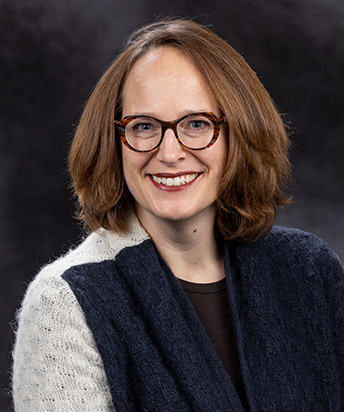World Language Policies & Guidelines
UND’s Department of Languages & Global Studies welcomes all students to enroll in our language acquisition courses.
Several degree plans require students to complete a certain level of language proficiency. Academic advisors can answer any questions concerning policies or placement.
Course Placement
- UND has no language placement exams.
- True beginners should enroll in 101.
- Students with two years of language experience should enroll in 102.
- Students with three years of language experience should enroll in 201.
- Students with four years of language experience may consider 202 or third-year placement, depending on their comfort level with the language.
- Students with more than four years of coursework, immersion, or study abroad experience, or those who are native speakers, are strongly encouraged to discuss proper placement with a language professor.
Native Speakers
Native speakers of a world language offered at UND are eligible to enroll in any 400-level language course, or any 300-level class with a literary or cultural emphasis. Native speakers must receive departmental permission to enroll in any LANG 101 – 202 course, or any 300-level language course. Students are not eligible to earn a world language certificate in their native languages.
Any student seeking an International Studies major whose first language is not English may opt to use English to fulfill the Level IV language requirement for the major.* Any student seeking an International Studies minor whose first language is not English may opt to use English to fulfill the Level II language requirement for the minor.* The student must meet the standards set by UND Admissions for English proficiency for international students to satisfy the requirement. (*Level IV proficiency = pass fourth semester, LANG 202, or equivalent; Level II proficiency = pass second semester, LANG 102, or equivalent.)
Lateral Credits
UND rewards students who prove their proficiency in a world language. Students who place into a language course higher than 101 are eligible to earn up to 16 free lateral credits by completing additional courses in the same language. To earn lateral credits, a student must:
- Complete two additional language classes in the sequence. (Example: a student who places into SPAN 102 must complete that course [SPAN 102] and SPAN 201 to be eligible for four free lateral credits for SPAN 101.)
- Earn grades of B or higher in each course.
- Submit a Lateral Credits Petition.
Validation of External Language Credits
- Students can earn UND world language credits through Seal of Biliteracy exams. The credits, course equivalencies, and process are included on UND’s Seal of Biliteracy webpage.
- Students can earn UND world language credits through Advanced Placement (AP) courses in French, German, Latin, or Spanish. The credits and course equivalencies are included on UND’s Advanced Placement (AP) webpage.
- Students can earn UND world language credits through International Baccalaureate (IB) exams in French, German, and Spanish. The credits and course equivalencies are included on UND’s International Baccalaureate Advanced Placement (AP) webpage.
- Students who have previous knowledge of French, German, or Spanish can earn credits through the College-Level Examination Program (CLEP). The credits and course equivalencies are included on UND’s College-Level Examination Program (CLEP) webpage.
World Language Certificate
- Students who complete courses numbered 101 – 202 in a UND world language are eligible to earn a world language certificate.
- Classical Studies students who complete CLAS 101 – 102 and CLAS 151 – 152 at UND are eligible to earn a certificate.
- Students who transfer fewer than 16 language credits to UND are required to complete two institutional courses at a higher level to earn a certificate.
- Students who transfer 16 language credits or more to UND are required to complete one institutional 300- or 400-level language course to earn a certificate.
- Lateral credits can satisfy a student’s LANG 101 – 202 courses.
- The certificate provides Level IV proficiency required for an Global Studies degree, which many language learners pursue as a complementary degree.
Essential Studies
A student who earns world language credits through lateral placement, AP courses, or CLEP exams can use these credits to satisfy their Humanities requirements for Essential Studies. These credits will not satisfy any Special Emphasis requirements.
Graduate Reading Exams
Graduate students who wish to meet a scholarly requirement in the following languages can take a reading test administered by the UND Department of Languages & Global Studies:
- Classical Greek or Latin
- French
- German
- Norwegian
- Spanish
To register for the examination, students must complete a two-step process:
- Thirty or more days before Reading and Review Day: Meet with a languages faculty member to discuss the exam format. The exam can be offered on Reading and Review Day in Fall or Spring semester.
- Ten or more days before the exam: Contact the Chair of Languages & Global Studies to be included on the exam list. Students may take the examination up to three times.
Graduate students may be able to satisfy their language requirement by passing a national standardized test, rather than an institutional exam. The School of Graduate Studies or a student’s graduate director can offer alternative options.
Contact

- melissa.gjellstad@UND.edu
- 701.777.0487
-
Merrifield Hall Room 331
Grand Forks ND 58202-8198